Ukraine Conflict: Is UN peacekeeping an option?
- Major General AK (Dr) Bardalai, Retired
- 07:19 AM,06 Jan 24
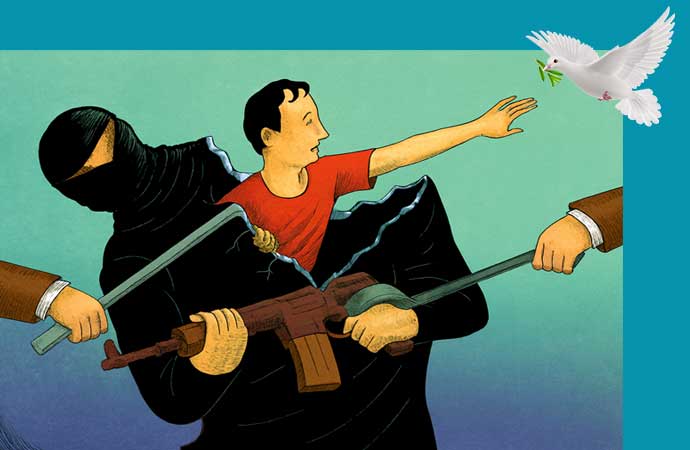
In one of his speeches, Prime Minister Benjamin Netanyahu of Israel had made a statement of Israel’s future plans for Gaza, in which....
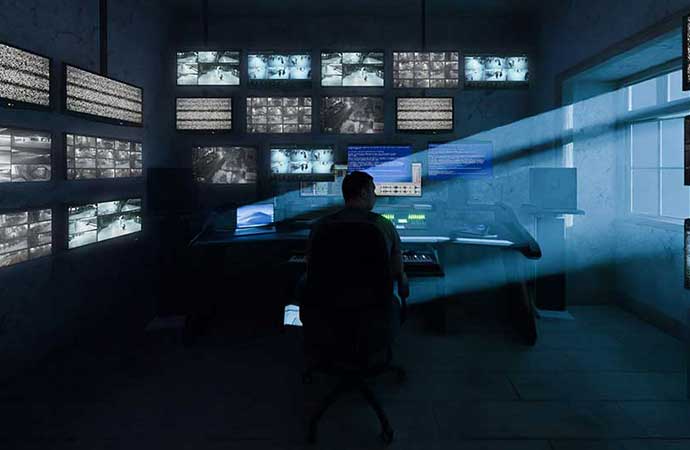
There is indeed hardly any commonality between China and India that can easily bring them together to face an economic power like the US.
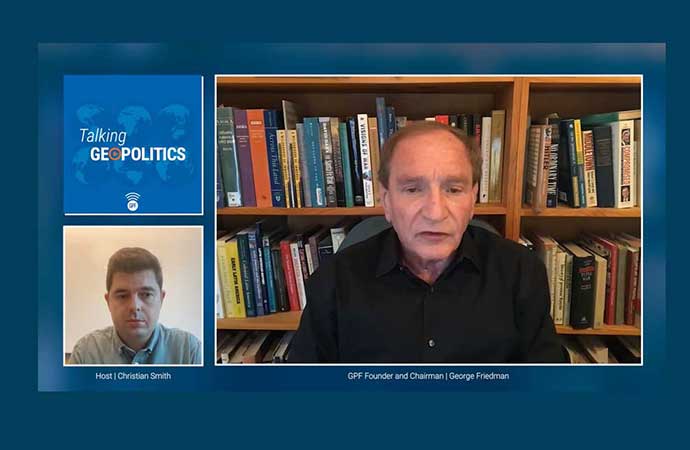
There is indeed hardly any commonality between China and India that can easily bring them together to face an economic power like the US.
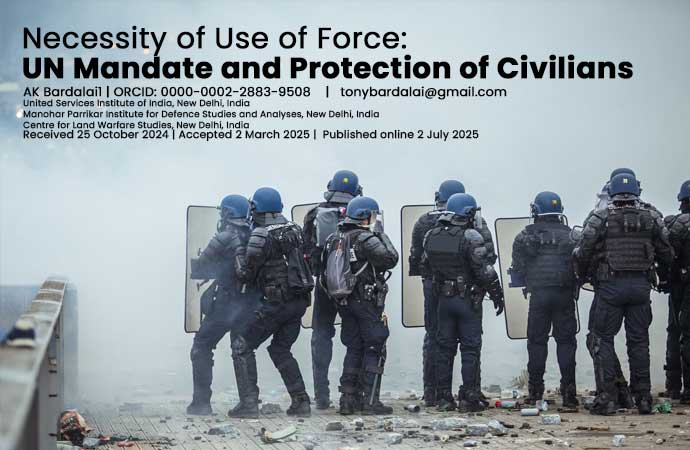
Mandates of the UN peace operations differ in different situations, contexts, and missions. The protection of civilians has now become
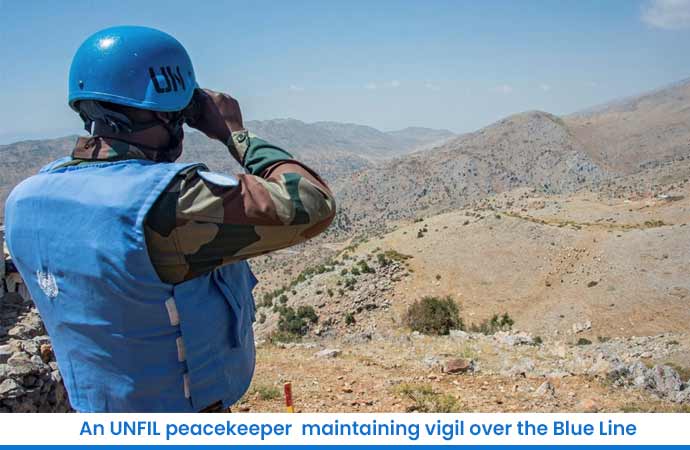
As the Middle East crisis continues and the IDF still occupies five positions in South Lebanon, UNIFIL's mandate is set to expire in August.

The latest initiative by the USA to bring an end to the Ukraine war has brought for some observer some movement into potential peace negotiations. Presuming Russia and Ukraine may be amenable and truly committed to a role for UN peacekeeping in the supervision of the ceasefire, there are then several scenarios that could be explored.
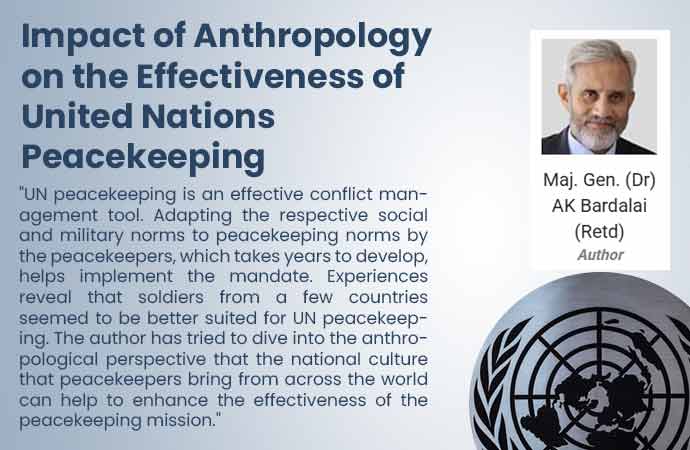
United Nations (UN) peacekeeping is an effective conflict management tool conceived during the early part of the Cold War. In the multinational structure of peacekeeping missions, the peacekeepers bring varying training standards, operational ethos, cultures, and traditions that are practised in their countries.
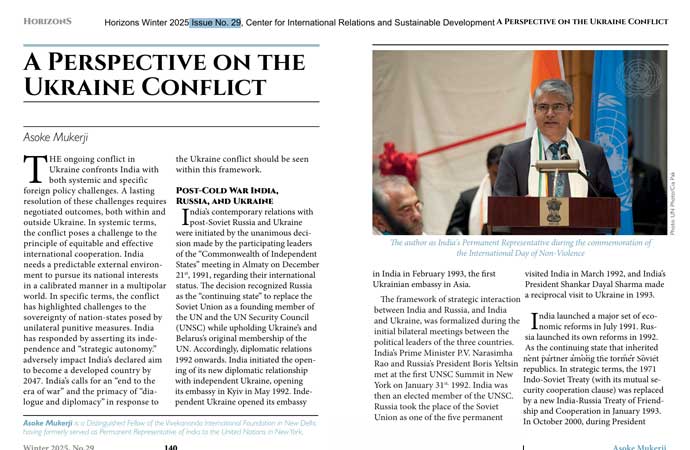
As the Russia-Ukraine war nears its third anniversary, India's stance has been shaped by its national interest, drawing both criticism and steadfastness.

The troops contributing countries can make UNIFIL effective if they continue to stand by their peacekeepers and follow through on warnings to Israel with action if their peacekeepers are harmed.

The past few years have been difficult with a growing number of global conflicts. To make things worse, the pandemic, followed by Russia's invasion of Ukraine, has threatened international peace and security.
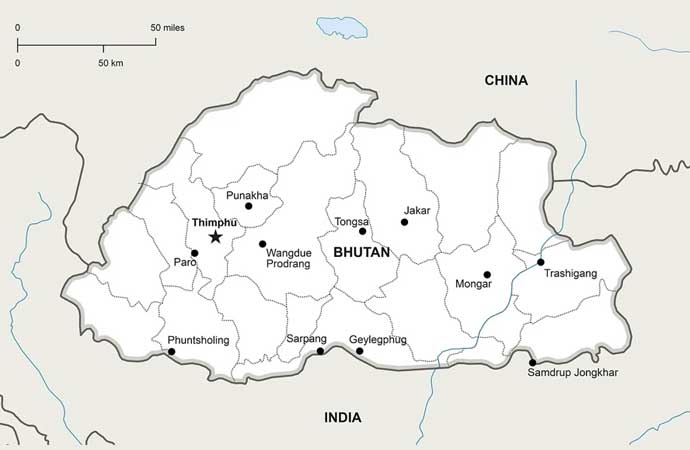
The legacy of the Indo-Bhutan relationship goes back by many centuries which has been only growing after India's independence. However, Bhutan getting closure to demarcating its disputed boundary with China is perceived in India as Bhutan compromising India's security despite their years of close relationship.
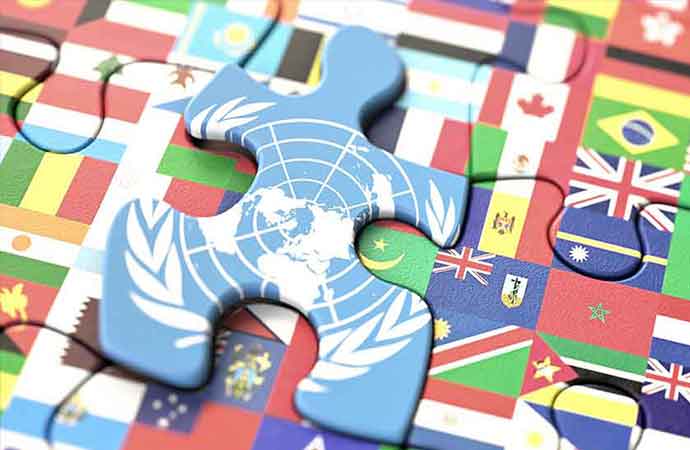
The nature of the United Nations (UN) peacekeeping operations has evolved considerably since 1948.
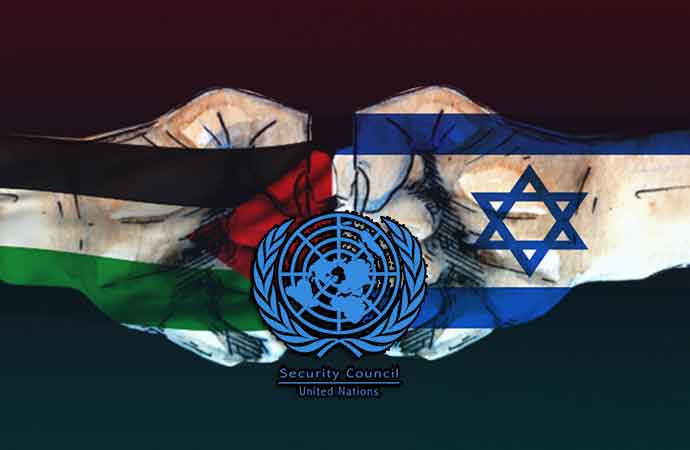
When the international community is unable to prevent a potential conflict from occurring, the UN Security Council becomes the first victim of the world's criticism, because of its perceived role as the guardian of peace despite
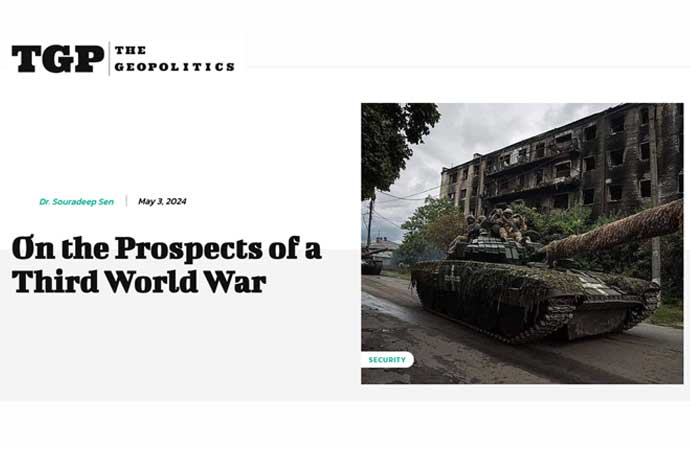
It is a wonderful piece and I applaud the argument that the next world war is not likely. What has come to my mind while reading the piece is
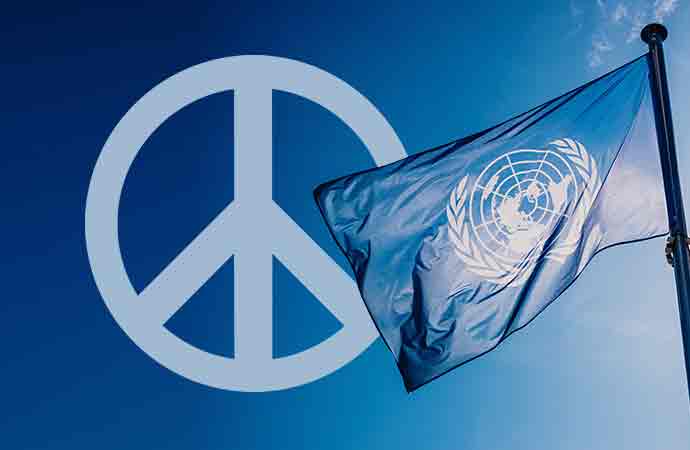
The United Nations (UN) is going through an identity crisis for having failed to prevent Russia from invading Ukraine, and for being unable to prevent the conflict.
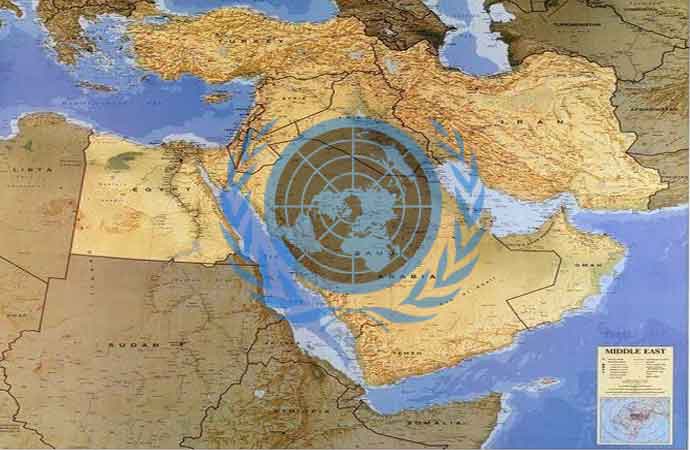
The past year has been difficult for the UN. No sooner did the world come out of the pandemic, than Russia decided to
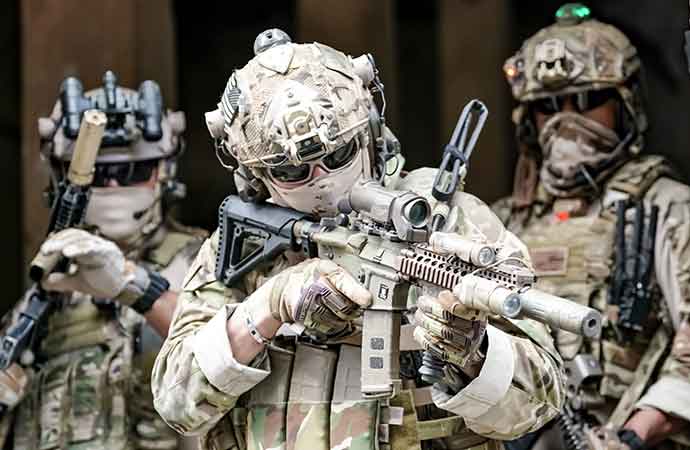
Many of us have read Frederick Forsyth's famous novel, "The Dogs of War" depicting the powerful intervention by mercenaries to destabilise new regimes in Africa. Are mercenaries or Private Military Contractors (PMCs) a new phenomenon, or have they been around for ages? Well, the term PMCs is new, but similar security services were around for centuries. In olden and medieval times, a King had several feudal lords or vassals who maintained soldiers for their own security and for lighting for the King when required or sought by the King.
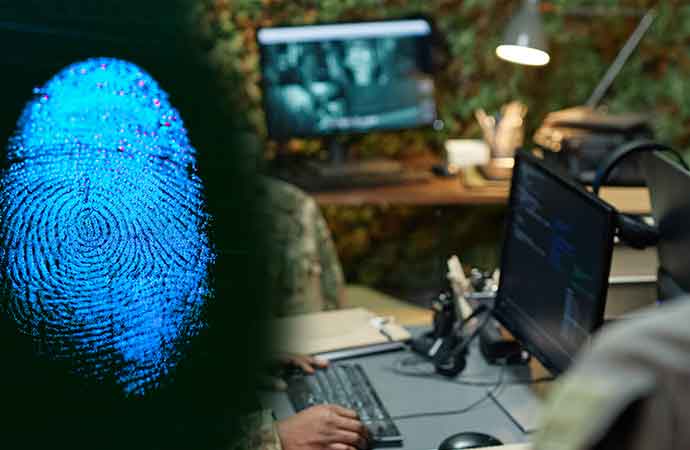
Electronic warfare (EW) plays a critical role in modern military operations by harnessing electromagnetic energy to exploit, deceive, or attack an adversary's electronic systems. The incorporation of Arti?cial Intelligence (AI), robotics, and cyber security has added new dimensions to electronic warfare capabilities. Adversaries leverage the Electromagnetic Spectrum to disrupt command and control structures, impeding decision-making processes. This article discusses how biometric pro?les are built up and used to target senior leadership.

The demand for wireless connectivity and Quality of Service (QoS) has grown exponentially over the last few decades. A new paradigm of wireless communication, the sixth-generation (6G) system, is expected to be implemented between 2027 and 2030 with the full support of Artificial Intelligence (AI).
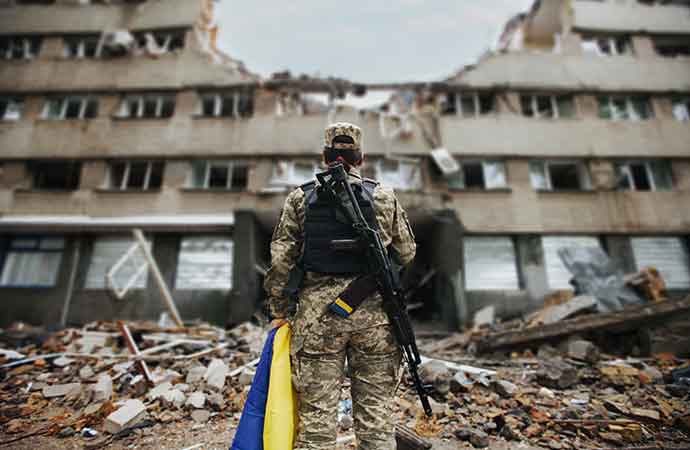
Russia's invasion of Ukraine has entered the second month but with no sign of a ceasefire yet. The flurry of diplomatic activities combined with the threat of more economic sanctions continues. Meanwhile, Poland has suggested a kind of peace mission as an interim measure.2 Gowan, The UN Director of Crisis Group, even though has not outrightly

Ever since human beings formed into groups and societies, managing perceptions was an important element of inter and intra group dynamics. It finds mention, albeit not called as such, in discourses of Kautilya, Sun Tzu, Machiavelli and others in the art of ‘State Craft' and ‘Warfare'. It is of late that the term “Perception Management” has gained currency. Kautilya's seven strategies of; Sanman (appeasement), Dand (punishment), Dana (gift, bribery), Bheda (dividing), Maya (illusion, deceit) Upeksha (equanimity), Indrajala (faking military strength), in dealing with neighbouring powers predominantly dealt in the realms of managing perceptions.
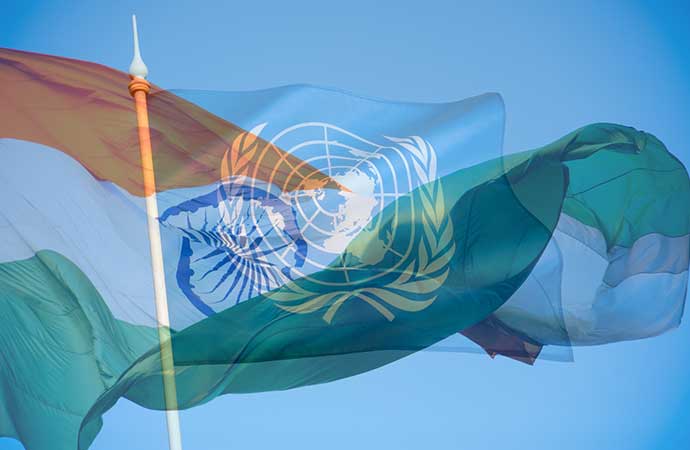
India has been in the lead in troop participation in some of the most difficult peace operations. Despite its contribution and the supreme sacrifices made, India and many other countries, who are the major contributors, have not received their rightful place in the United Nations (UN). On the other hand, important policy decisions are always made by the permanent members of the Security Council and a few other influential nations. Earlier, India was among only a few Troop Contributing Countries (TCCs) whose participation in peacekeeping was considered crucial for the success of the mission.